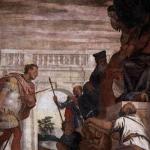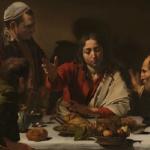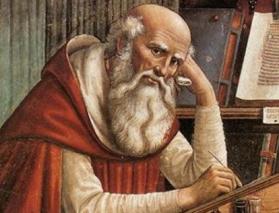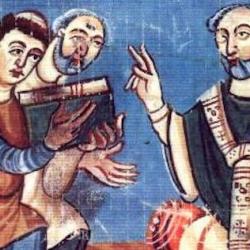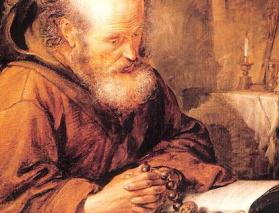John of Salisbury, the 12th-century political thinker, called Orosius, author of Seven Books of HIstories against the Pagans, a “disciple of the great Augustine.”
It’s true. According to Francis Oakley (Empty Bottles of Gentilism), Orosius “had studied with Augustine from 414 to 415, and he himself tells us that it was Augustine who had asked him to undertake the writing of the Seven Books. . . . When he finished the work in 417, it was to Augustine that he dedicated it, and its very survival and circulation may have been taken in the Middle Ages as confirmation of the fact that Augustine had approved of its contents” (117).
In fact, Oakley says, quoting another scholar, medieval historians were “more apt to read The Seven Books of Histories than The City of God” to get “an authoritative expression” of Augustinian thought (116). Alfred the Great had Orosius translated into English, and a Caliph had it translated into Arabic (244, fn, 33).
Orosius followed an earlier tradition of treating the rise and progress of Rome as a preparation for the gospel, but Orosius achieved this “in the most systematic fashion, setting out to do nothing less than demonstrate ‘in very respect that the empire of Augustus had been prepared for the advent of Christ'” (116, quoting Theodor Mommsen). Erik Peterson dismissed Orosius with “Augustus was Christianized and Christ Romanized” (quoted 116).
Needless to say, this doesn’t express Augustine’s own views of the Roman empire or of its relation to Christianity. It’s a significant fact that the distinction between the two wasn’t recognized in the Middle ages, and that medieval “political Augustinianism” was perhaps really a form of “political Orosianism.”

